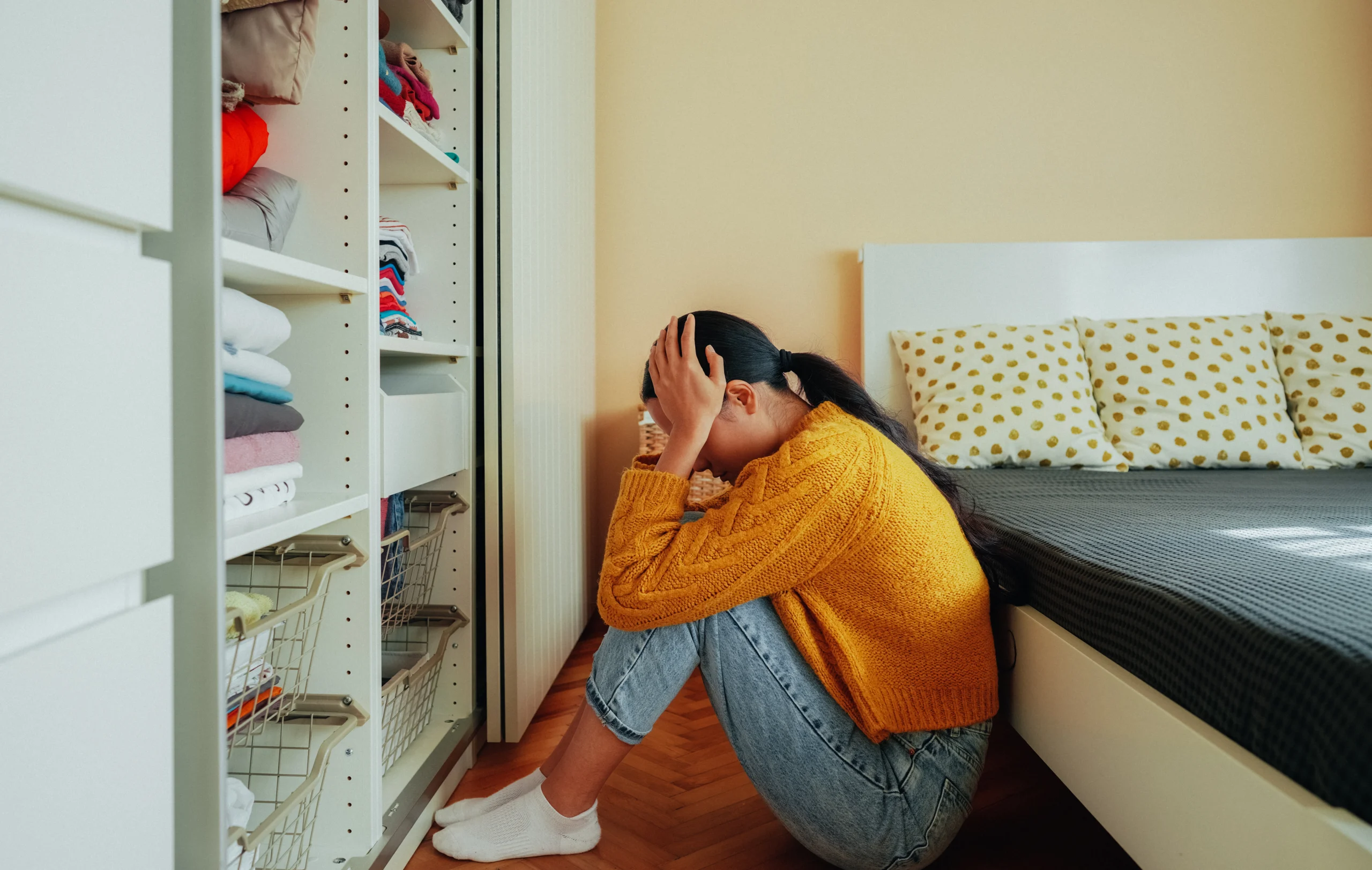What is Separation Anxiety in Adults?

When we talk about separation anxiety, most people assume you’re talking about a condition children experience. Some dismiss separation anxiety as a phase or a demonstration of a child’s healthy or unhealthy attachment to parents.
Separation anxiety is neither of these. Moreover, separation anxiety affects people of all ages — children as well as parents and other adults. Unfortunately, there is a strong stigma around adults who struggle with this condition. Understanding separation anxiety in adults can help shift that societal mindset.
If you’ve wondered about separation anxiety disorders in adults, your questions are about to be answered. In this article, we’ll explore this unique disorder, plus how to deal with separation anxiety in adults.
What is separation anxiety?
Separation anxiety is a condition in which an individual experiences extreme distress in the face of physical separation (or the thought of separation) from someone whom the individual has a significant emotional attachment to.
Who can experience separation anxiety?
Anyone can experience separation anxiety at any age, but it is most commonly seen in children. While trepidation regarding separation from a parent is developmentally appropriate, when it continues up to school-age years, it may be considered a disorder.
Although separation anxiety tends to occur with young children fearing their parent’s absence, it is also commonly seen between spouses or in regards to parent’s fearing their own child’s absence. There’s no shame in missing your loved ones, but when the distance prevents you from functioning in work, social relationships and daily living, intervention may be called for.
How does separation anxiety in adults work?
While the scientific understanding of this condition is limited, the journal Social Cognitive and Affective Neuroscience found that the amygdala (the area of the brain responsible for processing emotional experiences) is highly engaged, and those with separation anxiety disorder in adulthood were more emotionally responsive in the study conducted.
What does separation anxiety disorder in adults look like?
There are many behaviors that could indicate someone is struggling with separation anxiety. Some of the side effects may differ, but an individual will also be struggling with overwhelming fear or worry. Below are additional symptoms:
- Difficulty sleeping when the loved one is absent;
- Difficulty concentrating when the loved one is absent;
- Emotional dependence;
- Fear of natural disaster, car accidents and other unpredictable, dangerous events;
- Fearing for the safety of a loved one;
- Fear of a loved one getting lost;
- Wanting to accompany the loved one everywhere;
- Having no independent social life;
- Nightmares with a theme of separation;
- Compulsively checking locations electronically when the loved one is absent;
- Somatic complaints when the loved one is absent (stomachaches, headaches, etc).
In order for separation anxiety to be diagnosed, these symptoms must be present for at least six months.
Separation Anxiety in adults often manifests alongside other anxiety disorders, like generalized anxiety disorder, agoraphobia and panic disorder. However, the symptoms of separation anxiety in adults are more severe on average.
According to a study published in the journal BMC Psychiatry, adults who presented with separation anxiety were measured to show higher levels of depression, higher stress, higher neuroticism scores and greater impairments in daily life than other anxiety disorders.
How to deal with separation anxiety in adults
The best way to handle separation anxiety in adulthood is to get professional treatment. Separation anxiety is treated similarly to other anxiety disorders, with therapy, medications and lifestyle support.
Your treatment will likely consist of two aspects; one, you’ll work towards greater independence from your loved one, and second, you’ll learn to manage the stress of separation. This will include identifying and processing the root of your fear so you can conquer it for good. All of your work in treatment will be aimed at returning to normal functioning and excelling beyond it.
Is it ‘OK’ to seek treatment for separation anxiety as an adult?
It’s normal to feel worried when you’re separated from your loved ones. After all, your fear stems from a place of goodwill. Yet when this anxiety becomes overwhelming, it’s not fair to you or your loved one.
You owe it to yourself to find a healthy balance in the important relationships in your life. High Focus Centers PA can help. High Focus Centers PA offers residential and outpatient treatment options for mental health concerns. If you’re struggling with separation anxiety disorder in adulthood, you can stop living in fear. Get in touch today.






